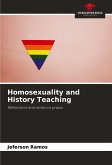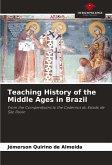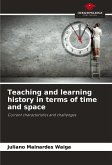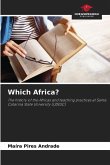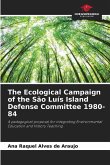The purpose of this paper is to analyze the Saerjinho assessment booklet. Saerjinho is part of the external assessment system of the state of Rio de Janeiro called SAERJ. SAERJ is made up of two assessment programs: the external assessment, applied annually, always at the end of the school year (SAERJ) and the diagnostic assessment of school performance, applied at the end of each two-month period (SAERJINHO). This research takes place in the context of the subject of History in the High School segment, in the 2013 and 2014 Cadernos. It seeks to reflect on how the teaching of history, the history of Africa and Afro-Brazilian cultures are presented and articulated in the Saerjinho textbook, based on Law 10.639/03, which makes the aforementioned content compulsory.
Bitte wählen Sie Ihr Anliegen aus.
Rechnungen
Retourenschein anfordern
Bestellstatus
Storno


